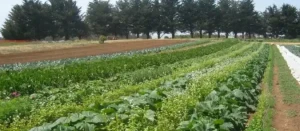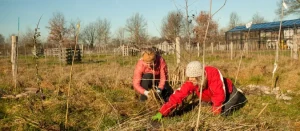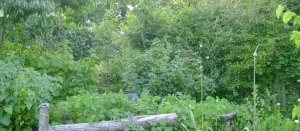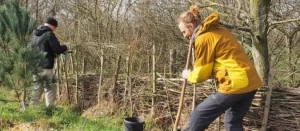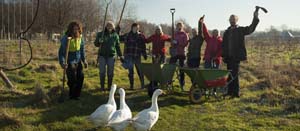SEARCH RESULTS > ARTICLES > Climate Change
As gardeners, we are stewards of the land, nurturing and coaxing life from soil, sun, and water. In our pursuit of abundant harvests and flourishing landscapes, we often seek methods that not only yield bountiful crops but also sustain the delicate balance of our ecosystems. One such approach that has gained significant attention and acclaim is agroecology. Learn More
In the face of escalating climate change and environmental degradation, the urgency to adopt sustainable practices has never been more critical. Permaculture, a design system rooted in principles of sustainability, offers a promising pathway towards mitigating the adverse effects of climate change (people and companies destroying nature) and restoring ecological balance. Learn More
Gardening is not just about growing beautiful flowers or tasty vegetables; it's about creating a sustainable and harmonious ecosystem. Regenerative gardening practices aim to restore and enhance the health of the environment, soil, and biodiversity. In this article, we will explore various regenerative gardening techniques that empower gardeners to contribute positively to the planet. Learn More
Edible forest gardens, rooted in the principles of permaculture, offer a sustainable and regenerative approach to gardening that mimics the structure and function of natural ecosystems. These gardens are designed to be not only beautiful but also productive, providing a diverse range of edible plants while enhancing ecological balance. In this article, we explore the concept of edible forest gardens and delve into the permaculture practices that make them flourish. Learn More
The microbiome in your garden soil refers to the diverse community of microorganisms that inhabit the soil. These microorganisms play a crucial role in maintaining soil health, nutrient cycling, and plant growth. The soil microbiome consists of various organisms, including bacteria, fungi, archaea, viruses, and microfauna (such as nematodes and protozoa). Here are some key points about the microbiome in garden soil. Learn More
Permaculture is a holistic and sustainable approach to designing and managing human settlements, agriculture, and ecosystems. The term "permaculture" is derived from "permanent agriculture" and "permanent culture," reflecting its core principles of sustainability and harmonious living with nature. In this introduction, we'll explore the fundamental principles and practices of permaculture, emphasizing its potential to create resilient and regenerative systems for the benefit of both people and the planet. Learn More
